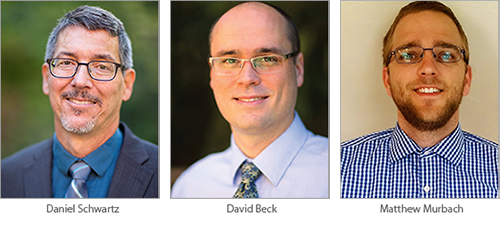ECS Data Science Hack Week
May 26-29, 2019
Dallas, TX
ECS Data Science Hack Week
Building on the success of ECS Data Science Hack Day (October 2017), ECS Data Science Hack Week (May 2018), and the ECS Data Science Showcase (October 2018), we are pleased to offer another exciting data science opportunity at the spring meeting in Dallas. In May 2019, the program will return to an entire week as the next stage in ECS supporting a growing electrochemical data science and open source community. The goal of these events is to bring together people from different backgrounds to collaborate in order to increase awareness and impact of data science tools, open source software, and shared datasets in electrochemistry and solid state science and technology.
Hack Week will again be led by the very capable and engaging team from University of Washington: Dan Schwartz, David Beck, and Matt Murbach. The program will kick off with optional software training tutorials on Sunday, and then sessions all day Monday through Wednesday.
Who should attend?
All electrochemical engineers can benefit from this workshop, whether experimentally or theoretically focused. Learning how to create, share, use, and improve open source software tools and public datasets is one way to accelerate research progress in our field.
Schedule
Sunday, May 26
- 0900-1200h — (Optional Segment) Introduction to Data Science Tools #1 (using the shell/terminal, version control)
- 1300-1600h — (Optional Segment) Introduction to Data Science Tools #2 (introduction to Python using Conda and Jupyter)
- 1930-2030h — Hack Week Kickoff Event
Monday, May 27
- 0830-1200h — Intermediate Python Topics
- 1200-1330h — Lunch Break
- 1330-1430h — Project Ideation and Team Formation
- 1430-1800h — Project Hacking Time
Tuesday, May 28
- 0830-1200h — Advanced Topics (e.g. cloud computing, machine learning, data visualization)
- 1200-1330h — Lunch Break
- 1330-1800h — Project Hacking Time
Wednesday, May 29
- 0830-1200h — Project Hacking Time
- 1200-1330h — Lunch Break
- 1330-1630h — Project Hacking Time
- 1700-1900h — Project Presentations and Wrap Up
Selection of attendees
The goal of this event is to increase awareness and impact of data science tools, open source software, and shared datasets in electrochemistry by bringing together people from different backgrounds to collaborate. We expect to have 42 slots for attendees, and will seek to build a cohort comprised of people with a diverse mix of experimental and theoretical electrochemical expertise, as well as a range of prior experiences creating and using open source software and python programing.
Interested?
The attendees of Hack Week are innovators, leaders, and emerging creators in their fields, all interested in accelerating research progress through data science. If you or one of your colleagues would like to learn more, please contact meetings@electrochem.org. To be considered for a spot at hack week, those interested should complete this application form. Application deadline is April 1, 2019, apply now!
Sponsorship
Are you or your company interested in sponsoring the ECS Data Science Hack Week program? The funds from your sponsorship go directly to support the program attendees, which includes complimentary meeting registrations, travel grants, and attendee food and beverage for the program events throughout the week! Don’t miss this opportunity to support this important program. Please contact sponsorship@electrochem.org to learn about opportunities.
Meet the organizers

David Beck is Director of Research with the eSciences Institute at the University of Washington and faculty in Chemical Engineer, and leads regular hackathons; he is Associate Director of the NSF Data Intensive Research Enabling CleanTech (DIRECT) PhD training program.
Matthew Murbach is past-president of the University of Washington ECS Student Chapter, and an advanced data sciences PhD trainee; he has been leading the student section software development sessions on the UW campus, and has practical experience coaching electrochemical scientists and engineers in software development.





